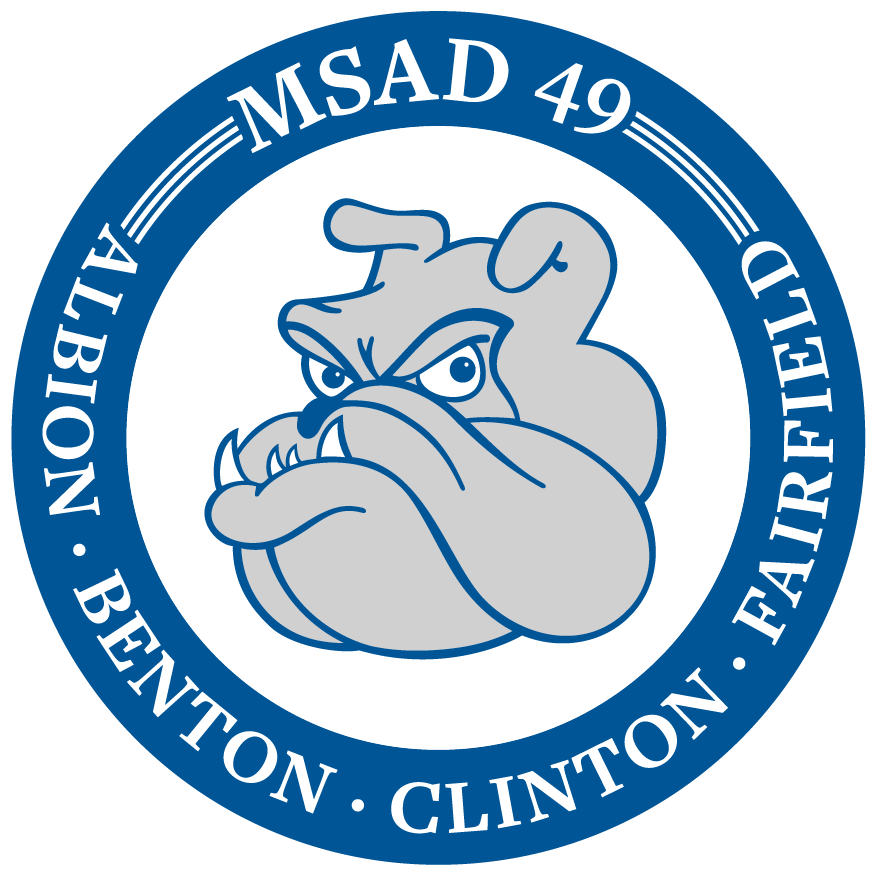MSAD 49
Guidelines for Severe Food Allergy Management
A food allergy is an immune system response to a food that the body mistakenly believes is harmful. Reactions to the allergen range from mild to severe and can be life-threatening. For some individuals, symptoms may develop when the food comes into contact with their skin, or after smelling the vapors of the food. Ingestion of the allergenic food is not necessary for some highly sensitive individuals. Avoidance is the only way to prevent an allergic reaction.
The first goal of the MSAD 49 School District is to try to the best of our ability to avoid the allergic child’s exposure to the offending food. The second goal is to have an emergency plan in place if accidental exposure occurs. This plan will provide for immediate treatment and medical support to prevent progressive symptoms, stabilize the individual, and provide for the necessary transport to a hospital.
The parents of any food-allergic student are the experts about that child’s allergy. The school will work in partnership with the child’s parents, physician and the student who has food allergies to develop a plan to ensure the safety of each student.
School-Wide Prevention Plan
The school will assure that all staff that interacts with the student on a regular basis understand food allergies, can recognize symptoms, and know what to do in an emergency. These staff members will include (but are not limited to) classroom teachers, specialists, cafeteria workers, and bus drivers.
Nurse’s Office
EpiPens and other emergency medication will be stored in an organized fashion in the nurse’s office. Emergency action plans will be kept on file and updated annually. The student may carry his/her own EpiPen with written permission from parent, physician and school nurse.
In the classroom
A nut-restricted classroom will be provided for students with peanut and/or nut allergies if the parent deems it necessary. If a nut-restricted classroom is needed, a notice will go home at the beginning of the school year informing parents that no snacks or lunches with nuts will be allowed in designated classrooms. Students are not allowed to share snacks with each other. After eating snacks, classroom tables will be wiped down. Parents of food allergic children will be informed if any food items will be in the classroom for special occasions. Students are encouraged to wash their hands frequently throughout the day in addition to after eating. Classroom teachers will ensure that information about the food-allergic student is available in the substitute folder.
In the cafeteria
A nut-restricted area will be provided for students with nut allergies if the parent deems it necessary. The school nurse and the principal will determine this area. This area will be monitored by an adult and thoroughly cleaned before lunch seatings. Peanut butter will not be served in the school’s cafeteria; however, students can bring peanut butter from home to eat at lunchtime.
On field trips
The teacher and the parent of an allergy student will review plans for field trips when indicated. The teacher or other trained adult will be responsible for emergency medications and action plans during a field trip.
Emergency Action Plan
The school will have an Individual Emergency Action Plan available in the nurse’s office for those students with known serious allergies. This form will be updated annually and cosigned by the parent. The plan will include medications to be administered, the physician’s name and emergency contact numbers.
In the event of accidental exposure, the school nurse should be notified immediately. The school nurse will assess symptoms of food allergy and administer emergency medications if necessary as directed in the emergency action plan. Rescue will be called and the parent will be notified in that order. If the accidental exposure occurs outside of school or the nurse is not immediately available a Code Blue will be called and the attending trained staff person will follow the emergency action plan.
Family Guidelines for Managing Students with Food Allergies
Notify us of all of your child’s allergies and their treatments.
Provide written medical documentation, instructions, and medications as directed by a physician.
Send provide your child’s teacher with some safe food substitutions for your child to eat when food is brought into the classroom for special occasions.
Identify to your child what foods are “safe and unsafe”.
Explain to your child to immediately tell an adult if they are experiencing an allergic reaction.
Tell your child not to trade or share snacks with other children.
Tell your child not to eat any food that has not been identified as safe.
Review food allergies and emergency plan with your child’s teachers, school nurse, bus driver, and coaches. This may include training them how to give an EpiPen.
Review the cafeteria menu to be sure the foods offered are safe for your child.
Call the Food Service Program Director at 453-4256 for any questions you may have concerning menu ingredients.
